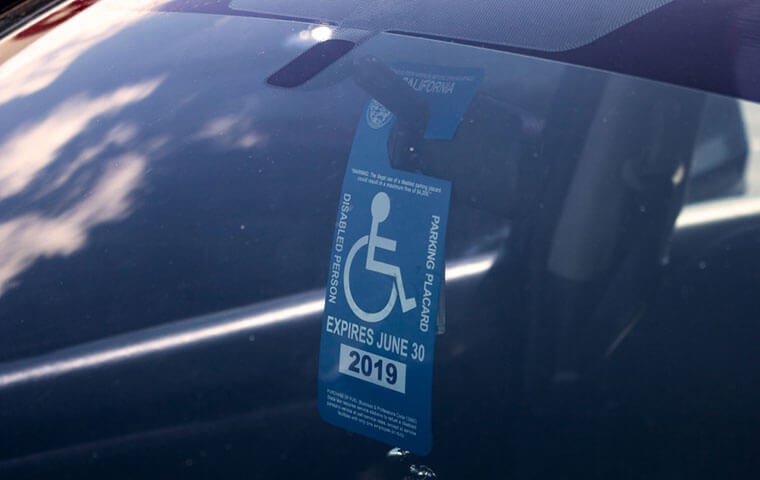 The VA contracts out such examinations when the demand exceeds its in-house capacity at its medical centers. Image: The Image Party/Shutterstock.com
By: FEDweek Staff
The VA contracts out such examinations when the demand exceeds its in-house capacity at its medical centers. Image: The Image Party/Shutterstock.com
By: FEDweek StaffAn inspector general report has faulted the VA’s oversight of outside facilities where examinations are performed on veterans who have filed disability claims, saying that of 135 such facilities auditors visited, 114 had deficiencies under the Americans with Disabilities Act or the Occupational Safety and Health Act.
Those included accessibility issues with parking, ramps, entrances, bathrooms, exam rooms and medical equipment; building safety issues including blocked stairways, noncompliant handrails, expired or inaccessible fire extinguishers, and blocked exit routes; and cleanliness issues including cluttered and dirty hallways, grime and cobwebs in sinks and a fire alarm “full of dead insects.”
“Those deficiencies are indicators of facilities having problems related to accessibility, safety, or cleanliness that in some cases also made it difficult to accommodate some veterans who needed exams,” said the report, which was done in response to “concerns raised by veterans through customer satisfaction surveys regarding accessibility, safety, and cleanliness” of those facilities.
The VA contracts out such examinations when the demand exceeds its in-house capacity at its medical centers, with the Medical Disability Examination Office to conduct oversight. However, the IG found that while prior policy required that office to conduct random and complaint-based visits to such sites, that was revised to say only that such visits “may” be conducted.
The IG also found that the VA office depended on vendors to provide it with facility information for possible site visit locations because it “lacked independent access to the current inventory of all facilities where exams were conducted”; assigned vendors the responsibility of sending out exam satisfaction survey cards, “which affects the integrity of the process as the vendors distributed the cards that assessed their own performance”; and “did not verify vendor compliance with ADA and OSHA requirements even though it received complaints from veterans about accessibility, safety, and cleanliness.”
“Of the total 135 facilities, 99 had complete inspections while 36 had partial inspections. These deficiencies went undetected because MDEO did not provide the necessary oversight to assess the validity of the vendors’ self-certifications regarding ADA and OSHA contracts compliance,” it said.
VA management generally agreed with the resulting recommendations, although saying it is unable to independently verify all active subcontracts because exam vendors execute those agreements with third party medical professionals.
Senate Eyes Vote to Pay Federal Employees Working Unpaid
Series of Bills Offered to Address Shutdown’s Impact on Employees
Public Starting to Feel Impact of Shutdown, Survey Shows
OPM Details Coverage Changes, Plan Dropouts for FEHB/PSHB in 2026
Does My FEHB/PSHB Plan Stack Up? Here’s How to Tell
2025 TSP Rollercoaster and the G Fund Merry-go-Round
See also,
TSP Takes Step toward Upcoming In-Plan Roth Conversions
5 Steps to Protect Your Federal Job During the Shutdown
Over 30K TSP Accounts Have Crossed the Million Mark in 2025

